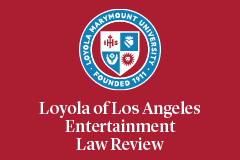Abstract
Major League Baseball (“MLB”) is a multi-billion-dollar business. While MLB contracts can be worth well over $300 million, there are thousands of minor leaguers in the shadows of MLB making between $3000 to $7500 a year. These players survive in poor living conditions, receiving salaries far below federal minimum wage. They endure years of financial struggle for the marginally slim chance of playing in “The Show.”
In Senne v. Kansas City Royals Baseball Corporation, minor leaguers took a stand and voiced their frustration with this unfeasible lifestyle. They filed a class action lawsuit against MLB asserting claims under the Fair Labor Standards Act (“FLSA”) and various state wage and hour laws. Over the last five years, the two parties have been battling over whether the minor leaguer’s claims can continue as a class action or if they must pursue their claims individually. On August 16, 2019, the Ninth Circuit Court of Appeals, in a 2-1 split decision, certified all proposed classes by the minor leaguers.
This Comment analyzes the class certification arguments of each side and asserts that the Ninth Circuit correctly ruled in favor of the minor league players. Using both practicality and public policy, this Comment underscores the majority’s arguments and ultimately contends that the decision should be upheld if writ of certiorari were to be granted.
Recommended Citation
Kevin Togami,
Bottom of the Ninth Circuit: Senne v. Kansas City Royals Baseball Corporation,
40 Loy. L.A. Ent. L. Rev. 311
(2020).
Available at: https://digitalcommons.lmu.edu/elr/vol40/iss3/1



